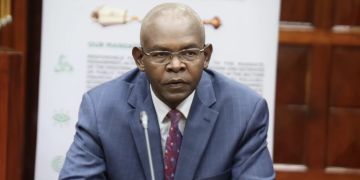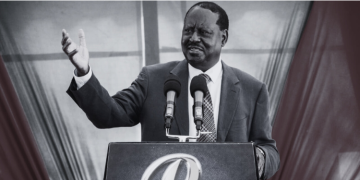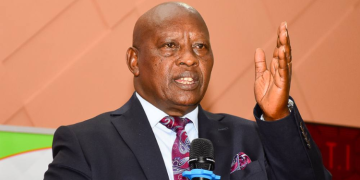The U.S. Senate has officially passed President Donald Trump’s controversial DOGE tax cut and spending Ksh1.2 trillion rescissions package, sending it back to the House for final approval just ahead of a critical Friday deadline.
Trump has been pressuring Republicans to support the bill, warning that he would withhold endorsements from any GOP lawmakers who oppose it.
Formerly led by Elon Musk, DOGE is tasked with identifying inefficiencies and proposing cuts to reduce federal spending.
Political Dynamics
The Friday, 18th July 2025 timeline adds urgency to the legislative process, as failure to pass by this date could complicate efforts under the presidential budget law used to circumvent the filibuster.
Also Read: Trump’s Secret in Ukraine Arms Shipment Resumption
The political dynamics surrounding Trump’s DOGE tax cut and rescissions package are intense and multifaceted, revealing deep tensions within the Republican Party and between the House and Senate.
Senate Republicans, however, are signalling they could modify the bill, especially to protect funding for programs like PEPFAR and public broadcasting, which are popular in rural and moderate constituencies.
“It is very important that all Republicans adhere to my Recissions Bill,” Trump posted on Truth Social.
This has created a loyalty test within the GOP, especially for lawmakers facing primary challenges or seeking Trump’s backing in 2026.
Two Republicans opposed the measure on the final vote: Sen. Susan Collins, who chairs the Senate Appropriations Committee, and Sen. Lisa Murkowski. The final tally was 51-48.
Senators like Lisa Murkowski have voiced concern over cuts to public broadcasting, which she called “an invaluable resource that saves lives in Alaska”
Some Republicans are cautious of appearing to discourage foreign aid and health programs like PEPFAR, which enjoy bipartisan support and are seen as vital to U.S. global leadership.
Officials were forced to make at least one major concession ahead of the final Senate vote, bowing to a demand from multiple GOP senators to spare funding for PEPFAR, the Bush-era program to fight global AIDS.
Proposal for DOGE Dividends
Another related but distinct development is the proposal for “DOGE dividends,” where a portion of the savings from government efficiency cuts could be returned to taxpayers as direct payments.
President Trump has enthusiastically endorsed this idea, suggesting that 20% of the savings could be distributed as Ksh644,500 checks to taxpaying households, or Ksh161,125 if DOGE cuts Ksh64.45 trillion by July 2026.
Also Read: Blow to Ukraine as France and Italy Reject US-NATO Arms Deal
However, eligibility is limited to the roughly 79 million households that pay income taxes, excluding about 40% of Americans who do not owe income taxes.
Economists and policy experts, including Kevin Hassett and Ernie Tedeschi, have expressed concerns about potential inflationary pressures, especially given low unemployment and existing worker shortages.
This proposal, while intriguing, is still under consideration and not part of the current bill awaiting the House vote, adding another layer of complexity to the fiscal policy landscape.
Current Status
The bill’s passage through the Senate was marked by dramatic votes, including a 50-50 tie broken by Vice President JD Vance, highlighting the biased nature of the legislation.
The House has already shown support in a mostly party-line 214-212 vote, indicating potential challenges in securing final approval.
With the deadline of July 18, 2025, looming, the outcome remains uncertain, with strong resistance expected in the Senate and ongoing negotiations shaping the final form of the bill.
The involvement of Elon Musk and the high-profile nature of DOGE have also drawn scrutiny, with some viewing it as a political tool and others as a genuine effort to streamline government operations.
Follow our WhatsApp Channel and X Account for real-time news updates.













































































